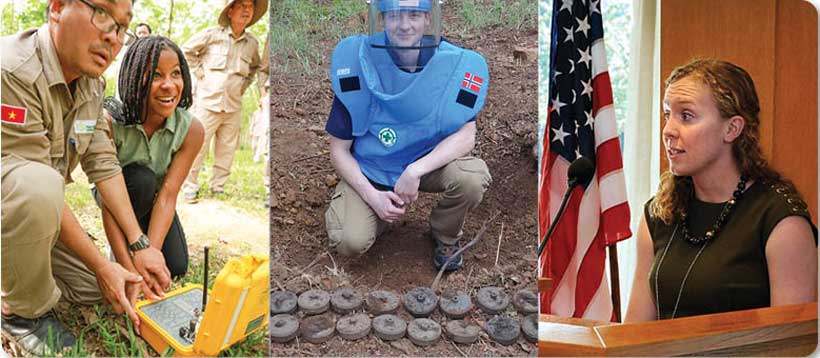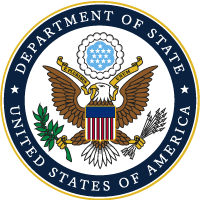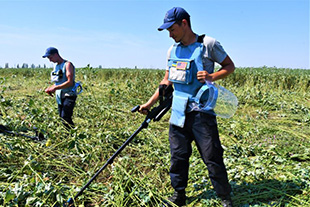
Frasure-Kruzel-Drew Memorial Fellowship at the U.S. Department of State
Fellowship recruitment is on hold while CISR works with the State Department to redesign the FKD Fellowship. We anticipate having more information about the fellowship in early 2025.
 The Frasure-Kruzel-Drew (FKD) Memorial Fellowship is a paid full-time, two-year career development opportunity sponsored by the U.S. Department of State’s Office of Weapons Removal and Abatement (PM/WRA) and administered by the Center for International Stabilization and Recovery (CISR) at James Madison University. The fellows will serve in PM/WRA’s Washington, D.C. office and gain valuable experience in managing international security and humanitarian assistance-related programs.
The Frasure-Kruzel-Drew (FKD) Memorial Fellowship is a paid full-time, two-year career development opportunity sponsored by the U.S. Department of State’s Office of Weapons Removal and Abatement (PM/WRA) and administered by the Center for International Stabilization and Recovery (CISR) at James Madison University. The fellows will serve in PM/WRA’s Washington, D.C. office and gain valuable experience in managing international security and humanitarian assistance-related programs.
The FKD Memorial Fellowship was established in 1999, originally to raise awareness among the American people about landmine contamination around the world and U.S. government efforts to address the problem. Since then, the fellowship has expanded with PM/WRA’s mission into other conventional weapons destruction activities including small arms and light weapons, stockpile destruction, and security. The fellowship is named in memory of Ambassador Robert C. Frasure, Dr. Joseph J. Kruzel and Colonel Samuel Nelson Drew who lost their lives in an August 1995 automobile accident in Bosnia and Herzegovina while on a diplomatic mission to negotiate peace. This fellowship was created in their honor to perpetuate their legacies of diplomacy, education, and public service.

Through the U.S. Department of State's official blog DipNote, former FKD Fellow Reyna Yang recently highlighted the impact that U.S. demining support can have on global affairs. As Russia's invasion severely impacts food security in Ukraine, the U.S. has committed $182 million for humanitarian demining and support to aid recovery from landmine contamination in agricultural areas. This important work, as facilitated by Fellows like Reyna, is key to ensuring U.S. support reaches communities that need it. Read her full post on DipNote.
For questions regarding the fellowship, please email Amy Czajkowski, or phone 540-568-5705.
